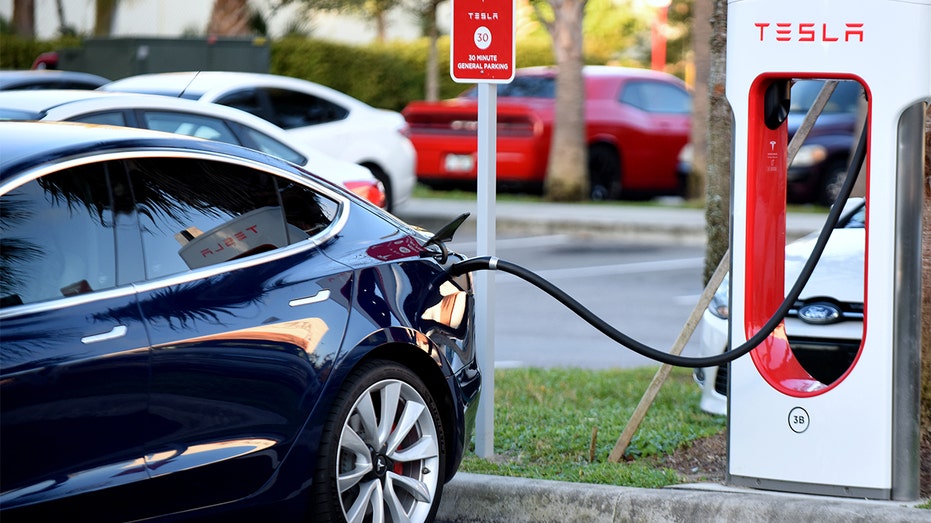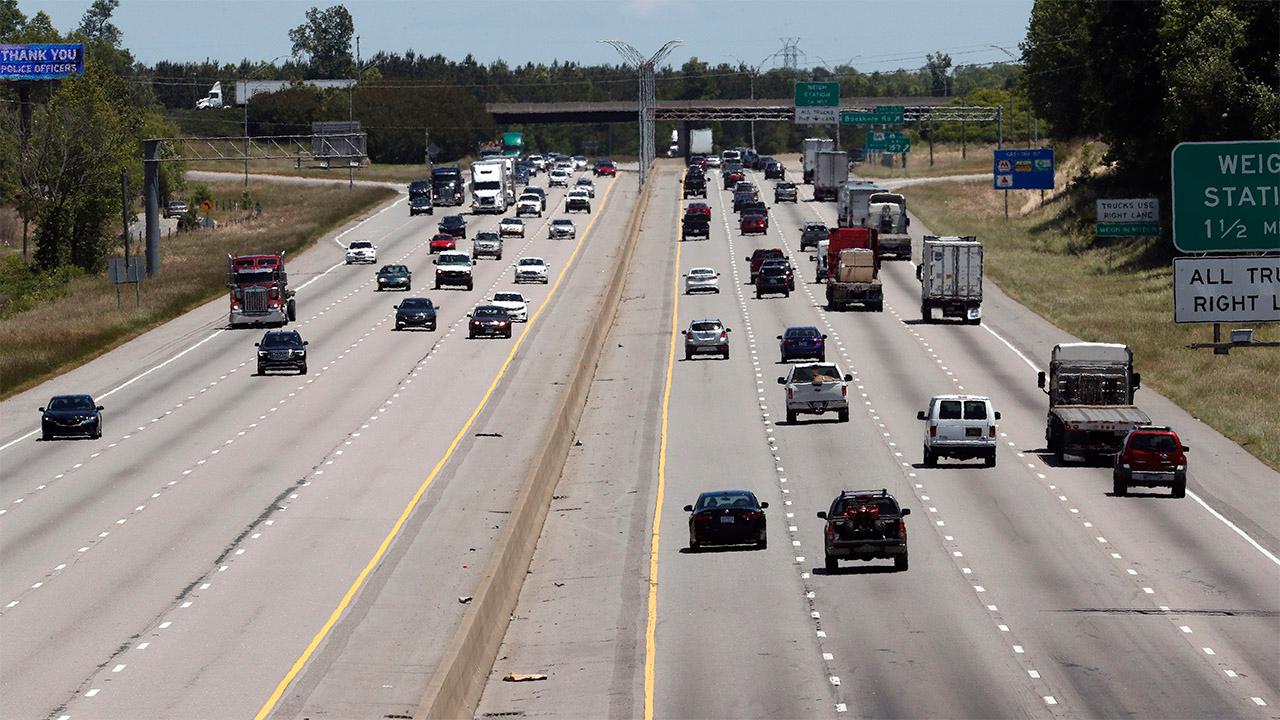Tesla registrations plunge in California, data tracker says
Registrations fell by a combined 37% in April and May
Registrations of newly purchased Tesla Inc. vehicles plunged in the critical California market over the past two months, according to new data, underlining the challenge Chief Executive Elon Musk faces to keep investor enthusiasm that has helped propel the company’s share price.
| Ticker | Security | Last | Change | Change % |
|---|---|---|---|---|
| TSLA | TESLA INC. | 411.11 | +13.90 | +3.50% |
The data from research firm Dominion Enterprises shows registrations fell by a combined 37% in April and May, offering the first window into how the U.S. quarantining measures to slow the spread of the coronavirus affected domestic demand for the Silicon Valley auto maker. It initially seemed more immune to problems than rivals when it posted a surprise first-quarter profit.
Tesla shares have soared since late April and set a new high last week, fueled in part by encouraging sales data from China, where the auto maker delivered a record 11,095 locally made Model 3 compact cars last month, according to China Passenger Car Association. Tesla only began shipping cars from the Shanghai plant late last year.
TESLA MODEL S TOPS 400-MILE RANGE, EPA SAYS
In California, Tesla’s largest U.S. market, registrations for the auto maker fell 16% in April to 6,260 new vehicles, compared with a year ago, according to Dominion’s Cross-Sell report. They dropped 70% to 1,447 in May. Industrywide, registrations in the state fell 52% each month compared with the same periods a year ago, the report said.

A Tesla electric car is seen parked at a charging station in Altamonte Springs, Florida on January 20, 2019. (Photo by Paul Hennessy/NurPhoto via Getty Images)
Nationwide data isn’t yet available. But across the 24 states that Dominion tracks, Tesla registrations declined 33% to 14,151 vehicles during the first two months of the quarter compared with a year ago, while those for the broader industry fell 43%. The researcher estimates the markets tracked, including New York, Florida, Texas, make up 65% of the whole U.S. auto market.
The two months cover the bulk of the seven weeks that production at Tesla’s lone U.S. car plant in Fremont, Calif., was halted to help control the spread of the Covid-19 disease and when most Americans were sheltering at home. The shutdown left Tesla without the ability to make cars and SUVs for North America and Europe.
TESLA IN TALKS WITH TEXAS COUNTY FOR NEW ASSEMBLY PLANT: REPORT
The auto maker didn’t respond to requests for comment. In the past, Tesla has questioned the validity of registration data as a gauge of the company’s performance, in part because some transactions can be delayed. Registrations for vehicles sold late in a month, for example, might not post until a new reporting period with state governments.
Nevertheless, the industry data is seen by observers as a reliable metric of retail activity, especially because Tesla doesn’t release any delivery figures for the U.S., unlike other major auto makers. Tesla is set to release global delivery figures for the current quarter in early July.

A masked man walks in the Tesla plant parking lot Monday, May 11, 2020, in Fremont, Calif. (AP Photo/Ben Margot)
The end of each quarter is typically pressure filled for Tesla. Unlike other auto makers, it books the sale of its vehicles when they are handed over to customers rather than to dealers. That places pressure on the company to make actual deliveries, compounded by the logistical challenges of having just two assembly plants globally from which it ships its cars to customers.
Tesla has faced additional challenges as it works to restart its business. Competing auto makers have been using incentives to get customers to buy new cars. The U.S. industry’s average incentive spending rose to $5,000 per vehicle in early May, though has slipped in recent weeks, according to J.D. Power. The electric-car company also is trying to sell vehicles at a time when gasoline prices have plummeted.
TESLA TRIES TO CALM CORONAVIRUS FEARS AT CALIFORNIA PLANT: REPORT
Tesla’s largest European markets aren’t faring well, either, according to local car registration data. Those in the Netherlands, which ranked as Tesla’s third-largest market by revenue last year after the U.S. and China, dropped 57% in the first part of the second quarter compared with a year ago. Registrations in Norway, the company’s No. 4 market, plummeted 94%.
Wall Street’s expectations for Tesla deliveries for the year have fallen amid the health crisis. Analysts surveyed by FactSet now project 430,000 vehicle deliveries, on average, down from their estimate of 510,000 in February. Tesla hasn’t reiterated its full-year outlook; before the pandemic, Mr. Musk predicted deliveries increasing more than 36% to over 500,000 vehicles.

Elon Musk, CEO of Tesla Motors Inc., introduces the Model X car at the company's headquarters in Fremont, Calif. (AP Photo/Marcio Jose Sanchez, File)
Deliveries in the second quarter, analysts believe, could fall 31% to 66,000, which would be the company’s worst performance since the first quarter of last year, when Tesla was struggling to export the Model 3 compact car for the first time.
In recent days, the company sparked concern about the strength of demand for its vehicles when it quietly lowered prices late last month. Last week, analysts from both Goldman Sachs and Morgan Stanley cautioned investors about Tesla in the near term, citing the price cuts as a warning sign.
CLICK HERE TO GET FOX BUSINESS ON THE GO
Another potential risk for Tesla, Morgan Stanley analyst Adam Jonas said, are strained bilateral ties between the U.S. and China. “We believe any potential deterioration of relations with China could disproportionately impact Tesla versus other stocks within our coverage,” Mr. Jonas said in a note.
Tesla also has been grappling with other issues. In recent days, Mr. Musk told workers that increasing production of the new Model Y compact sport-utility vehicle is their priority.
When Tesla was told to shut its U.S. factory, the order hit just as the company was beginning to deliver the Model Y, its latest vehicle, to customers. The SUV’s higher selling price, which starts at $52,900, could help bolster the quarter’s revenue if the company can put the vehicle in customers’ hands.
CLICK HERE TO READ MORE ON FOX BUSINESS




















